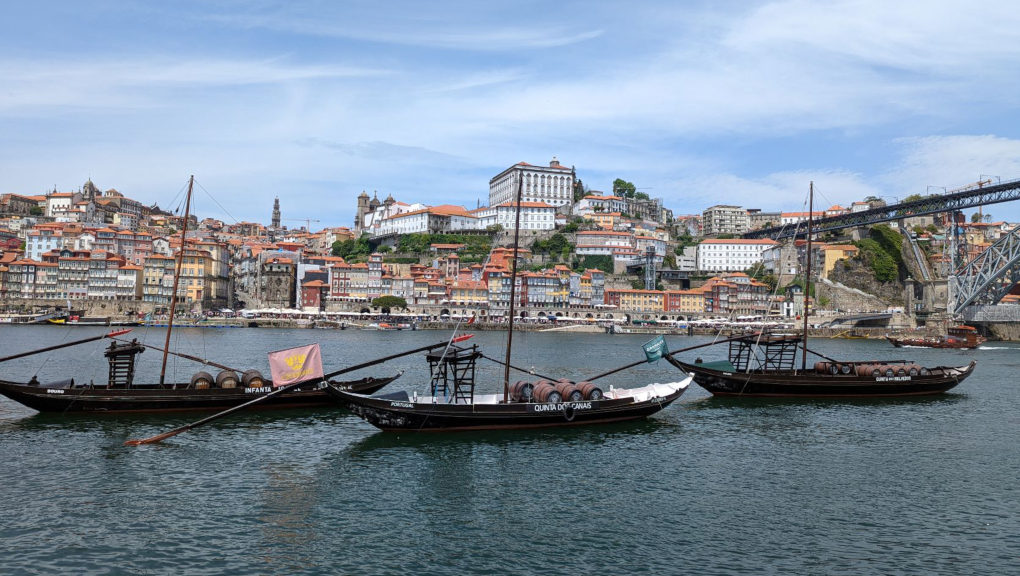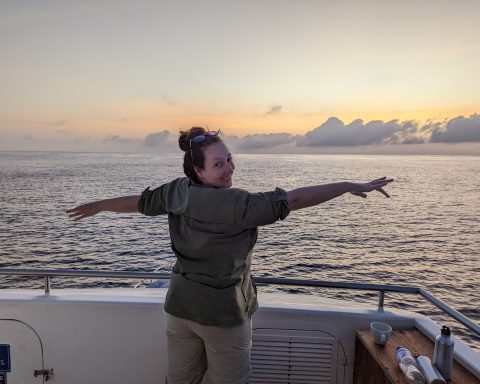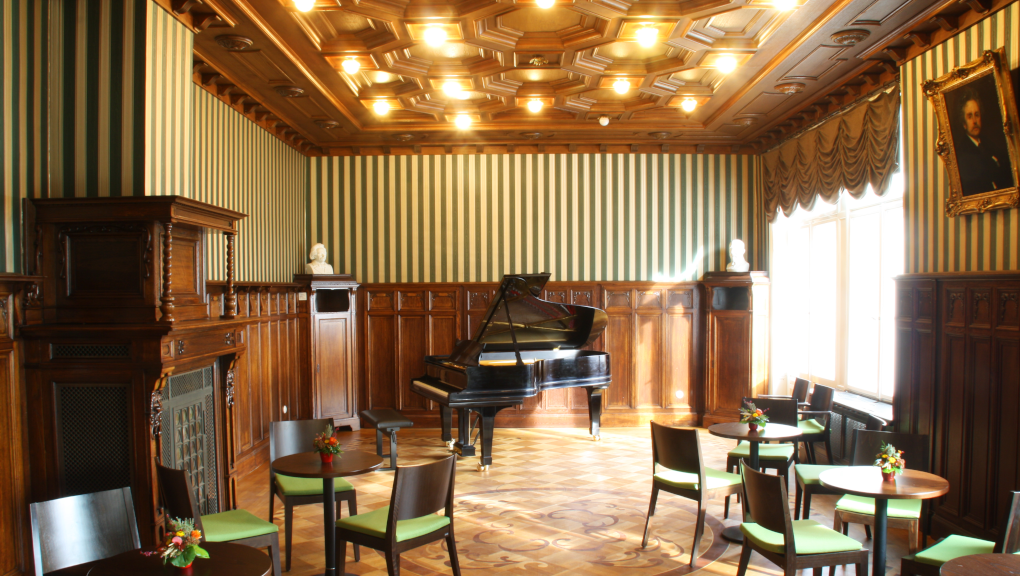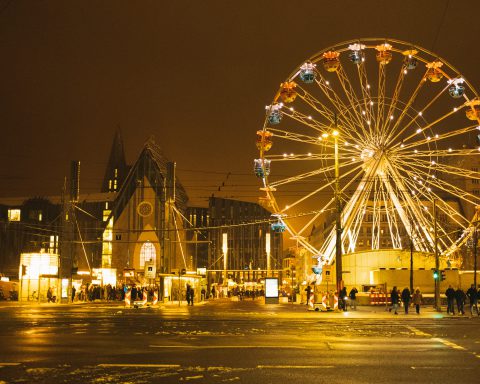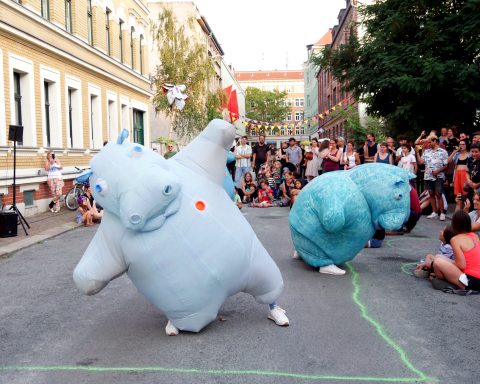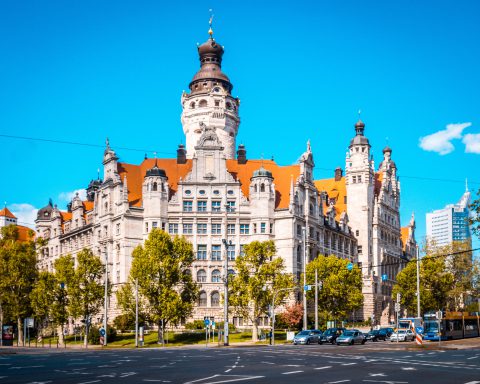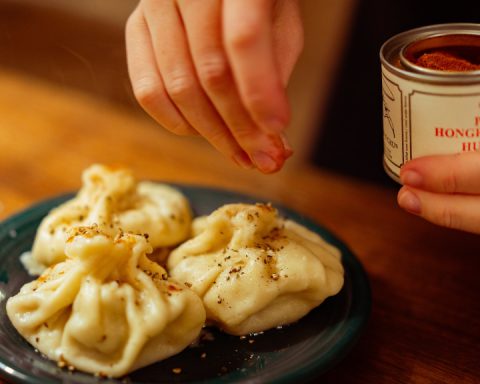Do you ever wish that you had the magical power to suddenly be proficient in a new spoken language?
I recently had two such experiences. Firstly, let’s start by saying that Spring 2022 seemed to be the time when folks were in overdrive. Travel here and there, and work on projects A through Z in five seconds flat. See every friend, everywhere, every day. Intensity for all the loss that was felt during the last two years. Which, honestly, I think has aged most of us much more than two years.
Quick Fix: Duolingo for language basics
In May, visiting Porto for the first time, I thought: girl, get on some Portuguese! Half your family is Portuguese and you don’t know the language – it’s a shame! Are you familiar with Duolingo? I metaphorically dusted off the app and added the Brazilian Portuguese language option. Strange, eh? Well, they don’t offer Portuguese on it, so I went with the closest language option. (Cough, cough! American app creators, please consider other regions!)
I have been familiar with hearing Portuguese off-and-on over the years. My Avó only ever spoke Portuguese to me, and my cousins razzed me for not speaking it when visiting the beautiful island of Madeira. It was time to start somewhere. I was trying to spend 10-20 minutes a day on the app, butchering my way through the Brazilian pronunciation to get the “ding!” to move on to the next exercise. I added the Portuguese keyboard to my phone so I could use the accents and have help with the spelling. It’s the opposite of German – not phonetic at all!
Fast forward to Porto: I’ve got an arsenal of about 20-30 nouns, tenho and estar, as well as a couple of pronouns.
The friendly reception for my extremely limited Portuguese shocked me. The folks we interacted with were so grateful to have someone attempting to stutter their way through their national language. Another surprise, why were they so happy to have someone try to speak Portuguese? Portugal has been receiving more and more tourists, creating jobs in that industry and economic growth, for some years now. As a native English speaker, there are many privileges around the world. Trying to speak the local language though, is such a mark of respect.
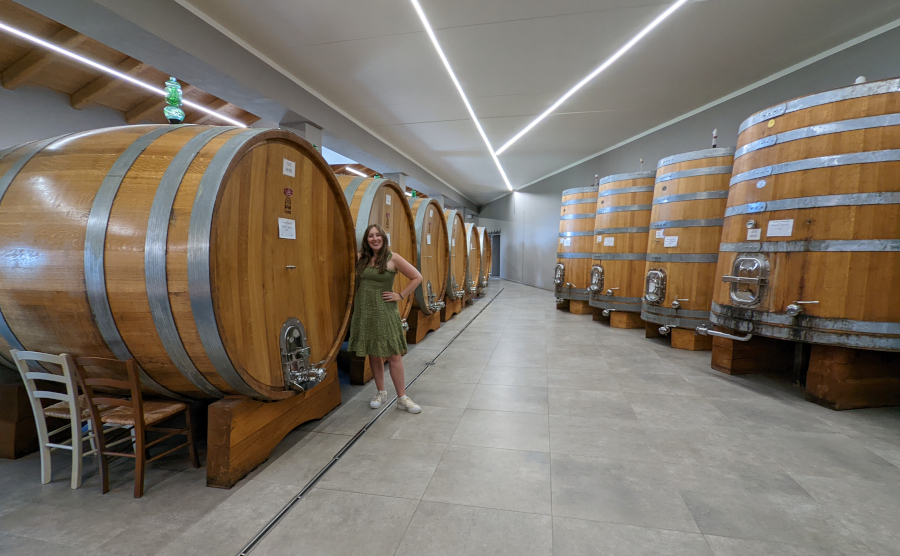
While exploring Porto, popping into restaurants, cafes, and Port wineries, and chatting with our hosts, I learned some more words to communicate with. Portuguese folks told me they were surprised to hear someone who’s not Portuguese speaking the language. The majority of tourists simply speak their own language with the expectation it’ll be known. For example, native English speakers will be heard speaking English while visiting, Spanish and French as well. These countries’ citizens, as well as Germans, account for around two-thirds of visitors to the country.
Friendly non-verbals are helpful, too
Gratitude and praise encouraged me to try even harder to fumble through this lovely language during our time in Portugal. I’m pretty sure my faux-Portuguese even got us a lunch table at a tapas restaurant when the kitchen was ready to close down for the afternoon. The server had fun with us, giving us Portuguese menus and saying he’ll help explain if we needed it. Naturally, we needed help.
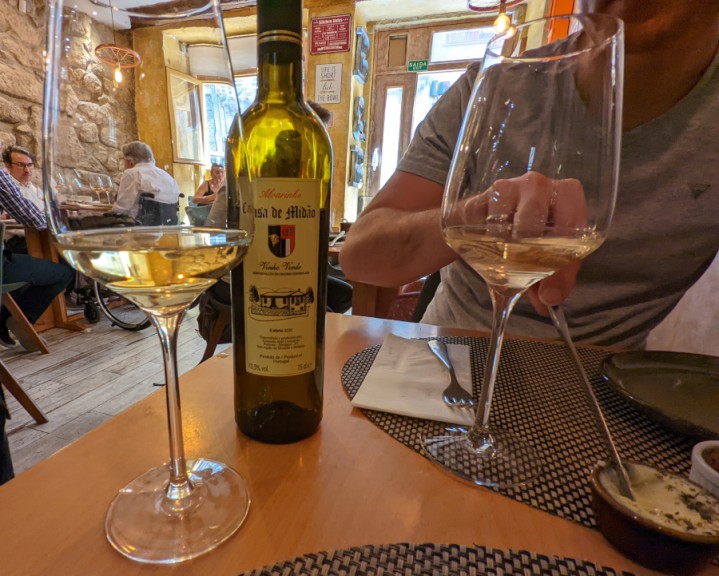
You might be thinking, this is fine. You have a heritage and family background with this language. Of course, you should know how to speak it then.
Another lesson in humility: pronunciation
Over the Easter long weekend – on Ascension Day, or Himmelfahrt in German – a dream came true. I visited Piemonte in Italy. There are no family associations with Italian as far as I know. Having gone to Venezia for a weekend in 2012, which I don’t actually consider part of Italy, I attempted to learn a few basics. Mi scusi, grazie, el Toilette, per favore. Folks laughed then, and literally every person we interacted with spoke excellent English.
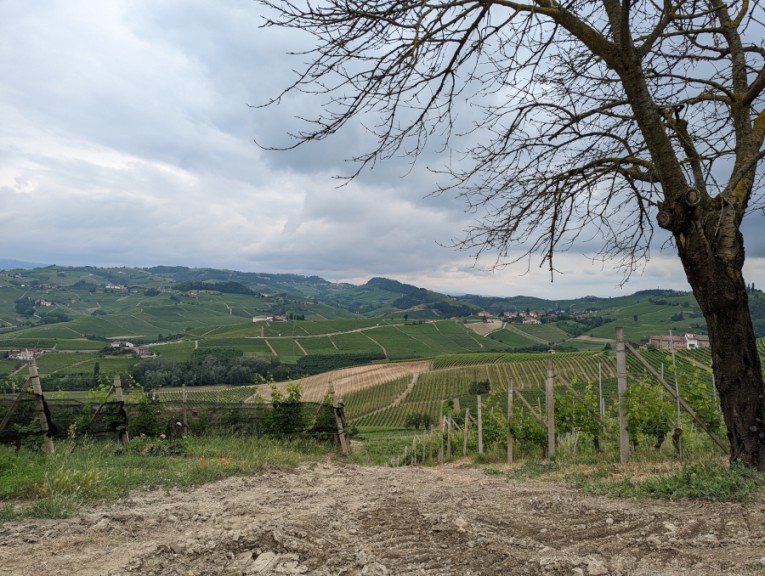
Piemonte is a region south of Turin and southwest of Milan. It’s probably most well-known for wine and white truffles. And has an interesting history of land formation with the hills. Now, that’s a whole different article in itself. Suffice to say, there is certainly tourism in this area, but it’s not nearly as well visited as the popular Tuscany region.
Which words do you usually try to learn when traveling somewhere new?
An Italian friend was gracious enough to respond to my questions asking for a few sayings. Un tavolo per due, grazie mille, complimenti, deliziosa, and a couple of other food/drink-related words. What I hadn’t really considered, before this countryside adventure, would be the pronunciation.
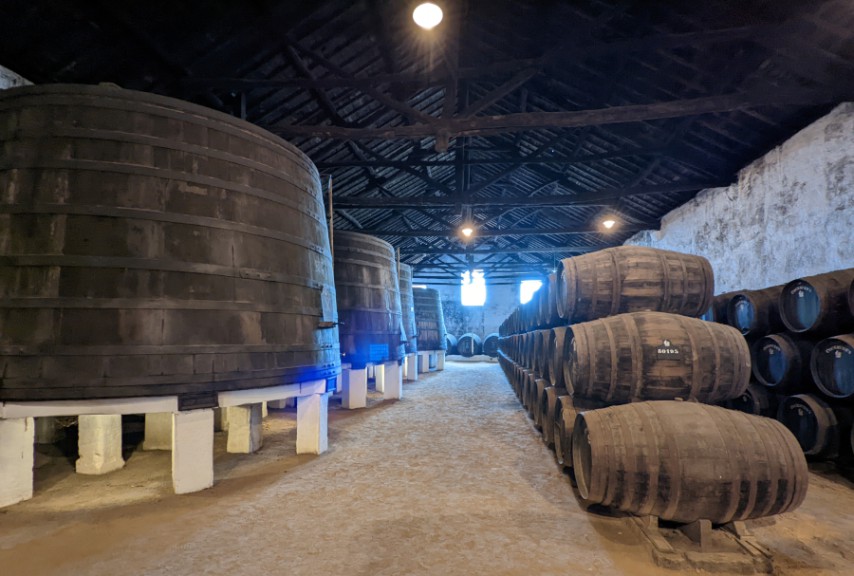
After driving 1050km to get to this gorgeous land, we popped into a random village for lunch. First goal: pasta! Where’s the pasta?! With delirium and joy to get out of the car, we followed our noses to the first restaurant that was open with indoor seating. The folks inside instantly knew we were outsiders, stopped talking, and stared. I said hello and asked for a table for two, with what I can only imagine was totally chopped-up, awful pronunciation. One of the staff then launched into full-blown Italian. Deer-in-the-headlights over here, I said, “Mi scusi?”, looking as though I’d just walked onto another planet. He slowed down and basically asked us, “Food or drink?” My husband, being great at charades, rubbed his stomach and I said comer – Portuguese for “to eat”.
I quickly learned that my mishmash of Portuguese would not help me in Italy.
Not that any of the Romantic languages are so close to one another, but French would have been more useful. And so the journey began. Italian felt completely foreign to me. Folks spoke very fast – as we English-speakers tend to do too. The saying, “A little goes a long way” can truly be applied to foreign languages.
On our last full day in the area, a Sunday, we went for a slow drive. We’d been told by locals that Treiso was a nice village, with great restaurants and nearby wineries. Thus far we hadn’t been steered in the wrong direction by any of their recommendations. Why not? As luck would have it, we popped into a winery in the village. An older woman greeted us at the door, of course in Italian. I used my tried-and-true sentence: un tavolo per due, per favore. Uh oh, she took that as an opening to communicate. As happened throughout the long weekend, my eyes and brain searched for something to say. Again, blank stare, smile, mi scusi, no Italiana. She waved her hands and walked away. Was that a sign of welcoming? Frustration? Whatever?
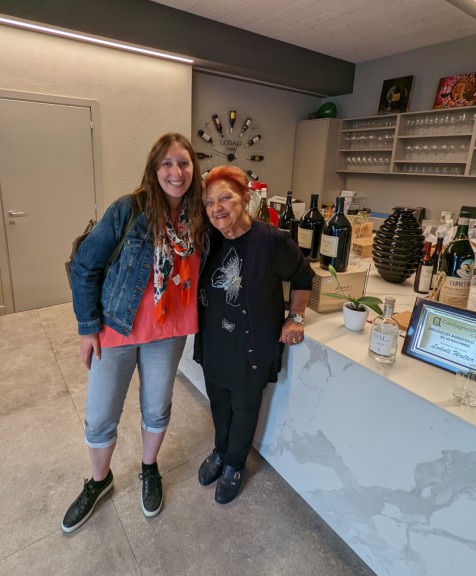
A younger man waltzed over to us and invited us to sit down – in English.
We told him a bit about what we were looking for in terms of wine, and he brought over a couple of glasses and started pouring some tasters. “Mama Rita” (as we later learned) brought over some delicious Aperitivo. Rita didn’t speak a word of English, and my Italian was much less impressive than my broken Portuguese. As our visit progressed, we had a nice conversation with her, using a lot of gestures. She slowed down her speaking so we had a chance to connect with what she was telling us. And when it got to be too much, her friendly staff member, Giovanni, would come and translate really quickly between serving other tables. An incredible female boss, to say the least.
Takeaways? Languages are fascinating, confusing, intriguing, and frustrating. I know for next time, though, try to learn a little more Italian!

